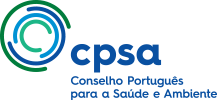Paulo Jorge Nogueira is a prominent expert in Biostatistics with a distinguished career focusing on the impact of heat waves on public health. He completed his Ph.D. in International Health, specializing in Health Policies and Development, at the Instituto de Higiene e Medicina Tropical, Universidade Nova de Lisboa, 2011. His doctoral dissertation, “Heat Waves: Models for Measurement, Prediction, and Monitoring of Health Impacts,” reflects his deep research and understanding in this critical study area. He was deeply involved in creating, developing, and enforcing the ÍCARO Surveillance System that predicts and monitors heat wave occurrences and impacts in Portugal, established in 1999 and still in use currently.
Moreover, Nogueira holds degrees in Probability and Statistics, both at the bachelor’s and master’s levels, from the Faculty of Sciences at the University of Lisbon, demonstrating his solid academic background in statistics applied to public health.
Since December 2023, he has been an Associate Professor at the Faculty of Medicine of Lisbon. Additionally, since 2019, he has worked as a consultant for the Directorate-General of Health (DGS) in the Information area, encompassing statistics, epidemiology, scientific methods, reporting, and dissemination.
Paulo Nogueira is also a member of significant research centers, such as the Public Health Research Center (CISP) at the National School of Public Health of the Universidade Nova de Lisboa and the Institute of Environmental Health at the Faculty of Medicine of the University of Lisbon (ISAMB) member of Associate Laboratory TERRA.
In summary, Paulo Jorge Nogueira is a highly qualified academic and professional whose work primarily focuses on the impact of heat waves on public health, encompassing both theoretical and applied aspects in biostatistics and epidemiology.
Paulo Jorge Nogueira

